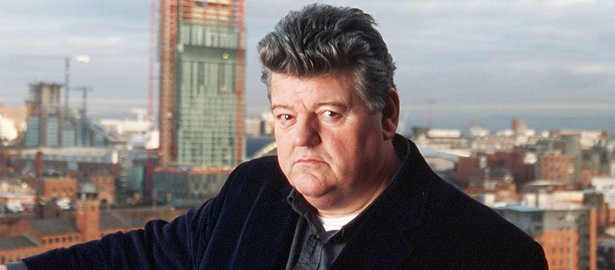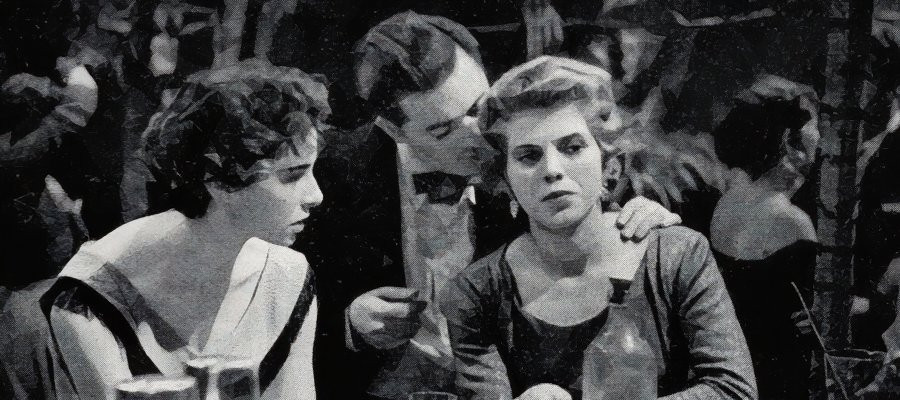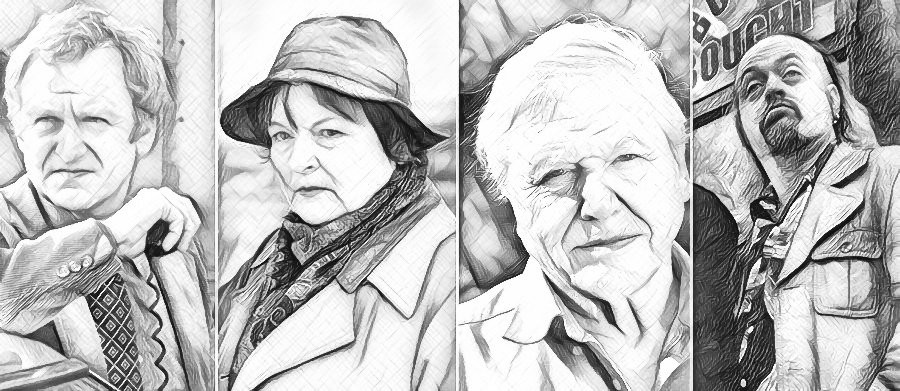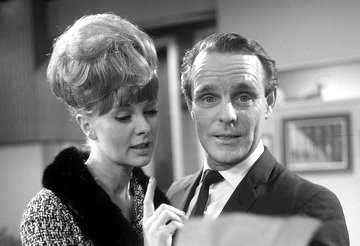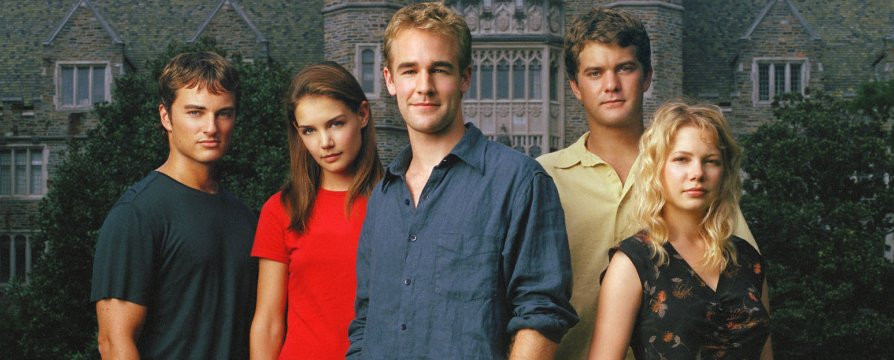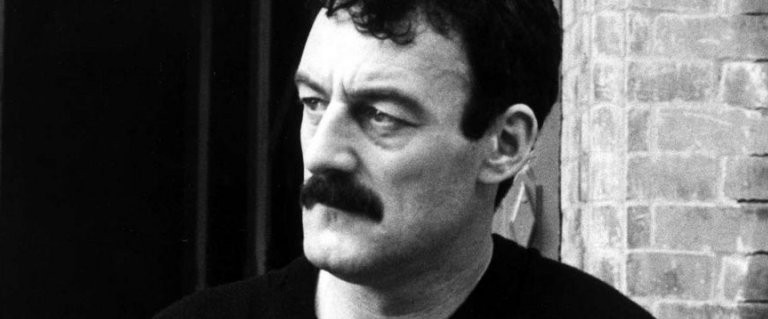
The Royle Family
1998 - United KingdomImagine being a television commissioner listening to the premise of The Royle Family. In a world of television sitcoms featuring broad characters, daft plots and canned laughter, a series about a working-class family simply watching TV, with a naturalistic style and no studio audience could have signalled the end of the British sitcom. Thankfully, it had the reverse affect, changing the comedy landscape at the turn of the new millennium and its impact can still be felt today.
After working on The Mrs Merton Show, best friends and writing partners Caroline Aherne and Craig Cash, wanted to write a sitcom about a working-class family, drawing inspiration from their own families for many of the characters. Along with naturalistic dialogue, the two opted for no studio audience, something that had rarely been done before on a television sitcom.
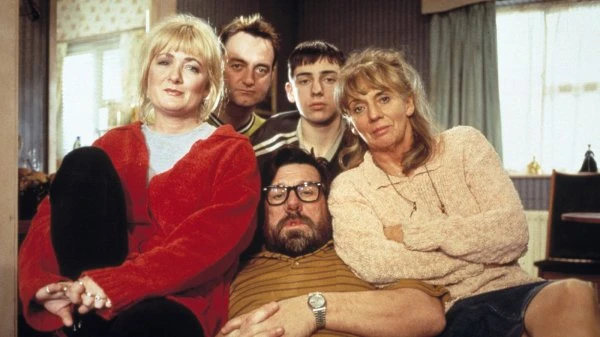
Although different in style, at its heart, the series is a traditional sitcom and was superbly cast. Jim Royle (Ricky Tomlinson) is the millennium’s answer to Alf Garnett, but more real and while less explicitly bigoted, he isn’t afraid to voice his opinions and expects to be waited on. Barbara (Sue Johnston) is a loving mother who dotes on her two children; the spoilt and clearly favoured Denise (Caroline Aherne) and the loved but overlooked Anthony (Ralf Little). Craig Cash played Denise’s loveable and dopey husband Dave, and Liz Smith was on fine form once again as the wicked old Norma, who bores the family with stories of her dead friends, frivolous topics and occasionally mischievous. Like all great sitcoms, there’s a brilliant selection of supporting characters including Twiggy (Geoffrey Hughes) and the Carroll family, with daughter Cheryl played by a young Jessica Hynes, who pop in to catch up. The Royle’s of course will rarely leave their seats!
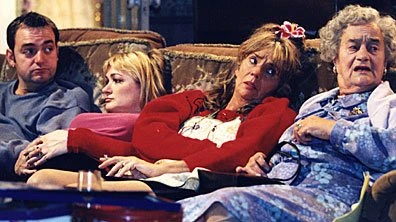
Excluding the latter specials, not one episode in The Royle Family’s original three series ever leaves the confines of the house and rarely from anywhere other than the living room and the telly. What made the show so unique was it’s very down to earth and almost trivial approach; they discuss bland topics such as their dinner, there are silences between conversations, arguments about their annoying habits and even in one brilliant episode, the Royle’s watch the Antiques Roadshow and place bets on the items asking prices. Aherne and Cash’s wonderful scripts makes the show a prime example of character driven comedy. Yes something happens in an episode that ignites some form of ‘plot,’ but it’s nothing outlandish. It’s either an argument or a recognisable family gathering like a Sunday dinner, and the characters wonderful dialogue and personalities are let loose to create half an hour of sitcom magic. Their often strange and peculiar habits and quirks seem bizarre when audiences watch them, but upon self-reflection realise that they themselves or their own family members share similar foibles. Like many great sitcoms, the characters and catchphrases have entered the national conscience. How many of us admit to knowing a Jim Royle? And even people who’ve never seen the show will immediately recognise where the catchphrase, “my arse” comes from.
These ingredients helped The Royle Family to quickly gather a cult following and critical plaudits. After beginning on BBC Two and following its award-winning success, the second series was moved to BBC One. This was also followed by a fantastic and emotional Christmas Special that saw Denise give birth to a baby son on Christmas Day. After a successful third series, following a fall out between Cash and Aherne and her desire to retire from television acting, the series 2000 Christmas Special looked to be the last episode.
Finally, The Royle Family returned in 2006 with the reunion special The Queen of Sheba. Catching up with the Royle’s six years later, they have pretty much remained the same. What binds them now, is Norma’s declining health, although she herself hasn’t lost any of her annoyances or sneaky endeavours. At the end of the episode Norma dies, and family and friends gather to say goodbye to a woman they loved.
Hotly anticipated, it was a critical and ratings smash, and was nominated for numerous awards. All the acclaim was much deserved; it’s a masterclass in sitcom writing. The series formula hadn’t dated and balanced laugh out loud comedy with some really hard-hitting subjects. Although tragic, it ends with a level of humour and sentimentality that is appropriate and never mushy. If this were the final outing, it would have been perfect and could easily have gone down as one of the best sitcom finales.
However, The Royle’s returned for sporadic seasonal specials over the following six years. While highly rated, these episodes received mixed reviews from critics and fans. While there was the odd moment of glory, what was once a series reliant on naturalism and observation, fell into the trap of slapstick and sitcom clichés; it simply didn’t feel like the same show. The final special was in 2012 and despite the mixed feelings, fans still hoped for further specials or even another series.
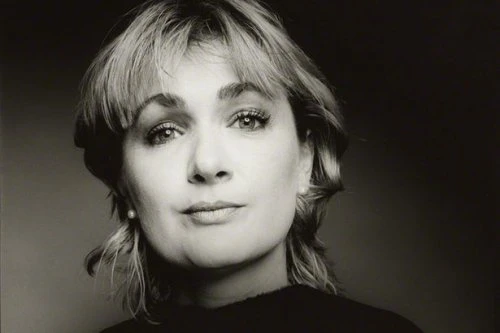
Sadly, Caroline Aherne’s premature death in 2016 closed the doors on any further visits to the Royle household. Although tragic under its circumstances, perhaps from a story standpoint, it’s for the best there’s no more. Take away the latter specials, with the three series and The Queen of Sheba, The Royle Family is a perfect sitcom package. Without it, we wouldn’t have The Office, Phoenix Nights, Extras or even Outnumbered to name but a few. It remains a firm favourite and rightly deserves its status as a British television classic.
Seen this show? How do you rate it?
Seen this show? How do you rate it?
Published on January 26th, 2019. Written by John Collins (October 2016) for Television Heaven.


